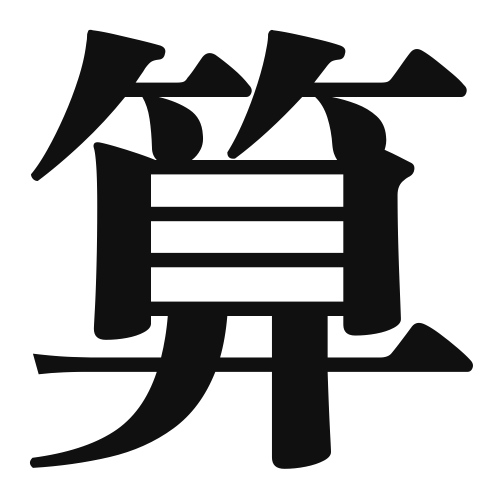1. Overview of Meaning
The kanji “算” (san) primarily means “to calculate” or “to compute.” It is often associated with mathematics and numerical operations.
2. Formation and Radical
Formation of the Kanji: The kanji “算” is a phonetic-ideographic character (形声文字). It combines the meaning of counting or calculating with a phonetic component.
Radical: The radical for “算” is “竹” (take), which means “bamboo.” This radical is often associated with counting and measuring, reflecting the kanji’s meaning.
3. Examples of Usage
Common Words and Phrases:
- 計算 (けいさん, keisan) – calculation
- 算数 (さんすう, sansuu) – arithmetic
Example Sentences in Daily Conversation:
- この問題を計算してみてください。 (このもんだいをけいさんしてみてください。) – Please try to calculate this problem.
- 算数のテストが明日あります。 (さんすうのてすとがあしたあります。) – There is an arithmetic test tomorrow.
4. Synonyms and Antonyms
Similar Kanji:
- 計 (けい, kei) – to plan or measure; it emphasizes the planning aspect of calculations.
- 算 (さん, san) – focuses more on the act of calculating itself.
Antonyms:
- 無計画 (むけいかく, mukeikaku) – unplanned; it represents the opposite of calculation and planning.
5. Cultural and Historical Background
Relation to Japanese Culture: The concept of calculation and measurement has been significant in Japanese culture, especially in traditional practices like agriculture and trade.
Proverbs and Idioms:
- 算を立てる (さんをたてる, san o tateru) – to make calculations; often used to imply planning or strategizing.
